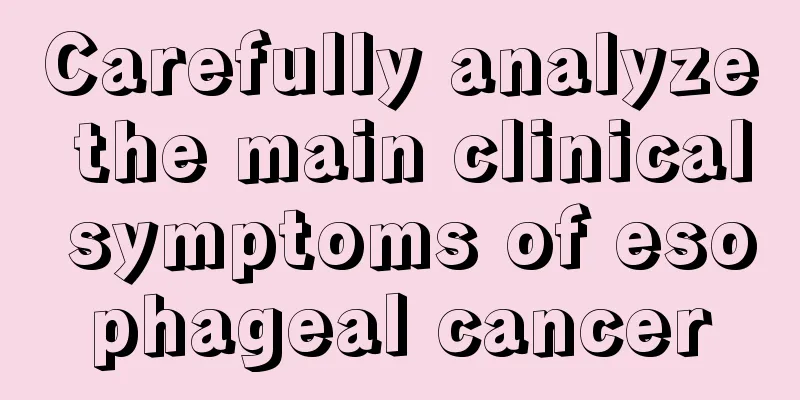Is it likely that lung cancer will be inherited?

|
There are two manifestations of familial cancer: one is that multiple people suffer from different cancers, and the other is that a certain type of cancer clusters in a family. Although familial cancer can indicate that cancer is hereditary, it does not mean that everyone will inherit it. Most cancers are the result of the interaction between genetic and environmental factors. The common living environment and living habits make families more likely to develop the same cancer. The following four malignant tumors have obvious genetic tendencies: Colorectal cancer has a disease called familial adenomatous polyposis, which is very likely to develop into intestinal cancer. It has been observed that if parents in the family suffer from colon cancer caused by the above diseases, their children have a 50% chance of developing the same cancer. Women whose mothers or sisters have had breast cancer in their family are three times more likely to develop breast cancer than the average woman. Therefore, in addition to age, diet, obesity and other factors, breast cancer is also closely related to genetics. In addition, bilateral breast cancer is more hereditary. Retinoblastoma Some retinoblastomas are also related to genetic defects. This is a malignant tumor that often occurs in children. About 1/3 of patients have bilateral occurrences, and they are all dominantly inherited, that is, the disease is common in several generations of a family. Another 2/3 only occur on one side, and about 10% of them are hereditary. Lung cancer reports show that if a person has a close relative with lung cancer and smokes, his risk of lung cancer is 14 times higher than that of the general population. Japanese scholars have shown that 35.8% of patients with squamous cell carcinoma of the lung have a family history; among female patients with alveolar cell carcinoma, as many as 58.3% have a family history. Early prevention can avoid Hereditary cancer is not terrible. If you know that there is a genetic history of a certain cancer in your family, you should take early prevention. First of all, you should take good care of yourself, change your bad eating habits, eat less fried and smoked food, quit smoking and limit alcohol, and eat more anti-cancer foods, such as tomatoes, sweet potatoes, milk, etc. Secondly, you should develop good living habits, have a regular work and rest schedule, not stay up late, stay away from decoration pollution; strengthen physical exercise to enhance resistance; and maintain a good attitude and look at cancer correctly. In addition, you should have regular physical examinations and screenings every year. Once you find signs of early cancer, you should treat it in time to control the disease. |
<<: The dangers of lung cancer puncture
>>: Will children be infected if they come into contact with lung cancer patients?
Recommend
What to do if your head is broken and bleeding
In our daily lives, we are bound to encounter som...
5 diseases you can detect from your breath
Identifying health conditions through breathing h...
Atrophic gastritis feels gastric alkaline
There are many types of stomach diseases, and atr...
Tips before using a new iron pan
Anyone with life experience knows that a new pot ...
How to diagnose fibroids
How to diagnose fibroids? If we accidentally get ...
The probability and method of curing laryngeal cancer with radiotherapy
The larynx is the main respiratory channel of the...
7 tips to deal with dry eyes
What should we do if our eyes are dry? Although o...
Is it true that cherries have bugs?
It is a common phenomenon that there are bugs in ...
What are the treatments for lung cancer? There are three main types of treatments for lung cancer
In recent years, more and more people have been d...
Will my weight decrease if moisture is expelled
There are more and more weight loss institutions ...
What are the effects of the diamond vine bracelet
Goldenrod is a plant that likes to grow in a rela...
At which step should eye cream be used
Eye cream has a wide range of functions. It can p...
Which hospital is the best for treating liver cancer? Detailed explanation of the methods of treating liver cancer
There are now many hospitals that treat liver can...
Is there a good treatment for acute orchitis?
Acute orchitis is also a very common case. Curren...
Can I dye my hair again the next day?
Taking care of yourself is probably a task that a...









